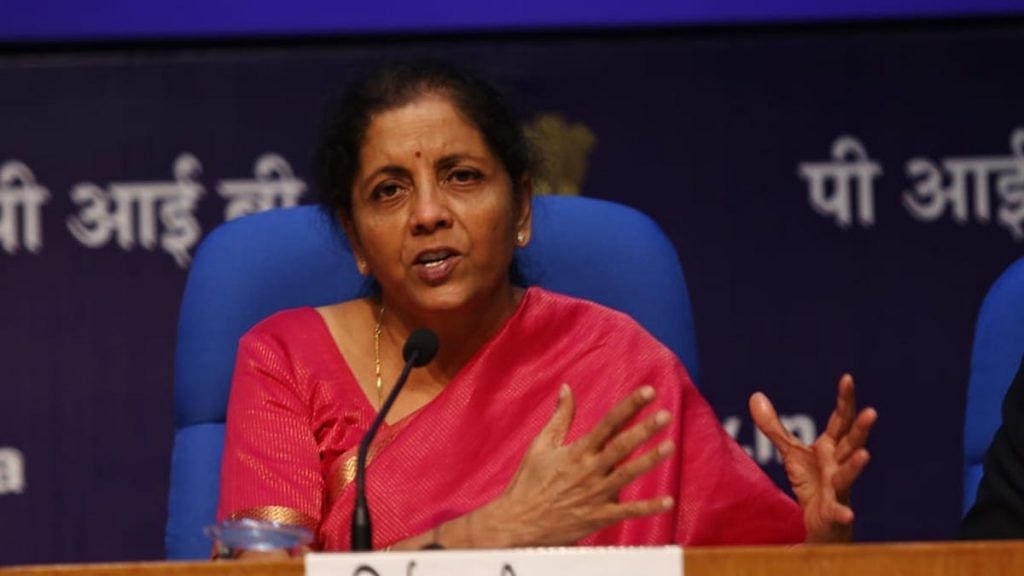Thank you dear subscribers, we are overwhelmed with your response.
Your Turn is a unique section from ThePrint featuring points of view from its subscribers. If you are a subscriber, have a point of view, please send it to us. If not, do subscribe here: https://theprint.in/subscribe/
The issue with most subsidies is not that they are given, but the inefficient way in which they are delivered. Given below is an effective way in which many of our merit subsidies can be effectively and efficiently delivered and also save money. Throughout the paper the main thrust of the author is that direct transfers should be made to the ultimate consumer, and not to the intermediate consumers.
- Food and agriculture subsidies: Currently subsidies are given via the Public Distribution System (PDS )to the final consumer, and intermediate stage subsidies to the farmer in the form of fertiliser, electricity, water , seeds, etc. The suggestion here is that the government should calculate the fair market value of the items they provide under PDS and transfer a monthly amount to the recipients’ bank account (preferably to the female head of a family). The intermediate subsidies given to the farmer should be terminated and the farmers should sell their produce at market value to the market( any shortfalls suffered by the farmer can be made up through income support). This approach would have the following benefits:
- i) Beneficiaries would be able to purchase the type of food which suits them best, depending on the regional cuisine and type of family members (e.g. milk for children, fruits for the sick, etc.) This will also help the country to produce what is required rather than force people to consume what is given.
- ii) Entire PDS system can be wound up(except for remote areas where there may be no commercial options) resulting in enormous efficiencies and savings to the country . Corruption in the system will also be eliminated.
iii) Inputs like electricity, , water, etc. can be priced at market prices resulting in efficient utilities .
- School Education subsidies: Currently subsidies are provided by way of free education in government schools . The suggestion here is to calculate the costs of this education and offer the choice of a direct benefit transfer of the amount ,or to opt for free education in a government school. This would lead to the following benefits:
- i) Competition & Choice for parents: As more parents may opt for private education, it may enthuse private schools to spread to smaller towns and villages. As government schools may have to downsize if they do not get students, it will spur the teachers to offer better quality, attendance etc. To the extent that some government schools would have to close down because of competition, it will result in savings to the government.
- ii) Financial help for parents: Currently, many poor parents opt for private education because they believe their quality is better. This will give them financial support to the extent of the subsidy.
- Electricity subsidies: Currently subsidies are provided by way of reduced rates for beneficiaries like poor families, farmers, some industries, etc. On the other hand most industries, commercial establishments, upper middle class etc. are charged higher rates as a cross subsidy. The suggestion here is to charge a single rate across all consumers. This rate will be calculated by the regulator such that it will deliver reasonable profits to the utilities. If the state or central governments want to subsidise any beneficiary they should make direct benefit transfer of appropriate amounts. This would lead to the following benefits:
- i) Utilities will stand on their own and not require constant bailouts. Lenders to utilities will also stand to gain.
- ii) Beneficiaries will use electricity more efficiently as they may be able to save some money through the direct benefit transfer.
iii) States will be judicious in grant of subsidies as their cash flow (and not that of the utilities) will be affected.
- iv) Industries will become more competitive (especially for exports)
- Railway subsidies: Currently subsidies are provided by way of reduced rates for some classes of passenger travel (including suburban travel), and some commodities of mass consumption. These subsidies are partially recouped by cross subsidising some other commodities. The suggestion here is to price all services fairly (perhaps with a regulator) and give subsidies by way of direct benefit transfer to targeted recipients( based on actual usage -subject to limits-as in the case of cooking gas). Individual states should determine beneficiaries and bear the subsidy bill of their suburban travel .This would lead towards the following benefits:
- i) Railways will be able to stand on their own, and work towards producing efficient, modern services.
- ii) Commercial users will become more competitive (especially for exports).
iii) Wealthy, upper middle consumers will not benefit from subsidised rates.
The above principles can be used for all other subsidies which are currently being provided or for future subsidies. The nation will benefit by way of increased efficiency and savings to the exchequer.
These pieces are being published as they have been received – they have not been edited/fact-checked by ThePrint.
